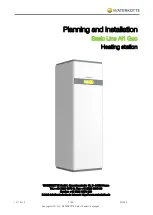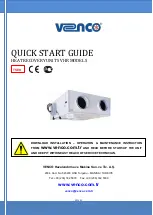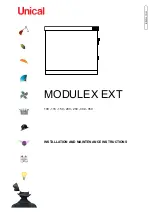
30 / 50 KVA
42
I1
I2
weld time
cold
weld time
hold
pause
squeeze
1
3
4
6
7
8
9
10
11
12
13
14
5
2
1 - First impulse welding current led (I1)
2 - First impulse welding time led (weld time 1)
3 - Parameter selector
4 - Simple-double impulse selector
5 - Simple impulse led indicator
6 - Impulse interval led (cold)
7 - 2nd impulse welding current led (I2)
8 -
9 - Digital display
10 - Parameter adjusting knob
11 - Double impulse led indicator
12 - Weld indicator
13 - Weld/no weld selector
14 - No weld led indicator
2nd impulse welding time led (weld time 2)
CONTROLLER
1 - Programming one welding cycle with one welding current impulse:
1.1-
Push key-button 4 until led 5 lights on (simple impulse).
1.2-
Push key-button 3 (parameter selection) until led 1 (I1) lights on.
1.3-
Adjust with adjusting knob 10 the welding current of 1
st
. impulse (I1) from 1 to 100%.
1.4-
Push key-button 3 until led indicator 2 (weld time 1) lights on.
1.5-
Adjust, with adjusting knob, welding time of 1
st
. impulse (weld time 1) from 1 to 100%.
1.6-
Adjust welding pieces and weld stepping pedal.
1.7-
The welding cycle becomes complete when led 1 (I1) indicates again the welding settled current.
2 - Programming welding cycle with 2 impulses of current:
2.1 - Push key-button 4 until led indicator 11 lights on (double impulse).
2.2 - Follow steps 1.2 to 1.5.
2.3 - Push key-button 3 until led indicator 6 (cold) lights on.
2.4 – Adjust, with adjusting knob, interval time (cold) between impulses.
2.5 - Push key-button 3 until led indicator 7 (I2) lights on.
2.6 - Adjust with adjusting knob welding current of 2
nd
. impulse (I2) from 1 to 100%.
2.7 - Push key-button 3 until led indicator 8 (weld time 2) lights on.
2.8 - Adjust with adjusting knob the welding time of 2
nd
. impulse (weld time 2) from 1 to 100%.
2.9 - Adjust the pieces to be weld and weld by stepping the pedal.
2.10 - The welding cycle becomes complete when led 1 (I1) indicates again the settled welding.
Attention: When the machine is connected in the main switch, the digital indicator indicates the mains frequency (50
or 60 Hz). The microcontroller detects the frequency and adjusts automatically these conditions. Next, it effectuates a
sequential automatic test to every LED and digital indicator. Finally, the digital indicator indicates “ON”, informing
that the machine is ready to operate.
Summary of Contents for SPOT 50
Page 14: ...14 ...
Page 26: ...30 50 KVA 26 ...
Page 38: ...30 50 KVA 38 ...
Page 50: ...30 50 KVA 50 ...
Page 51: ...30 50 KVA 51 ...
Page 52: ...30 50 KVA 52 ...











































